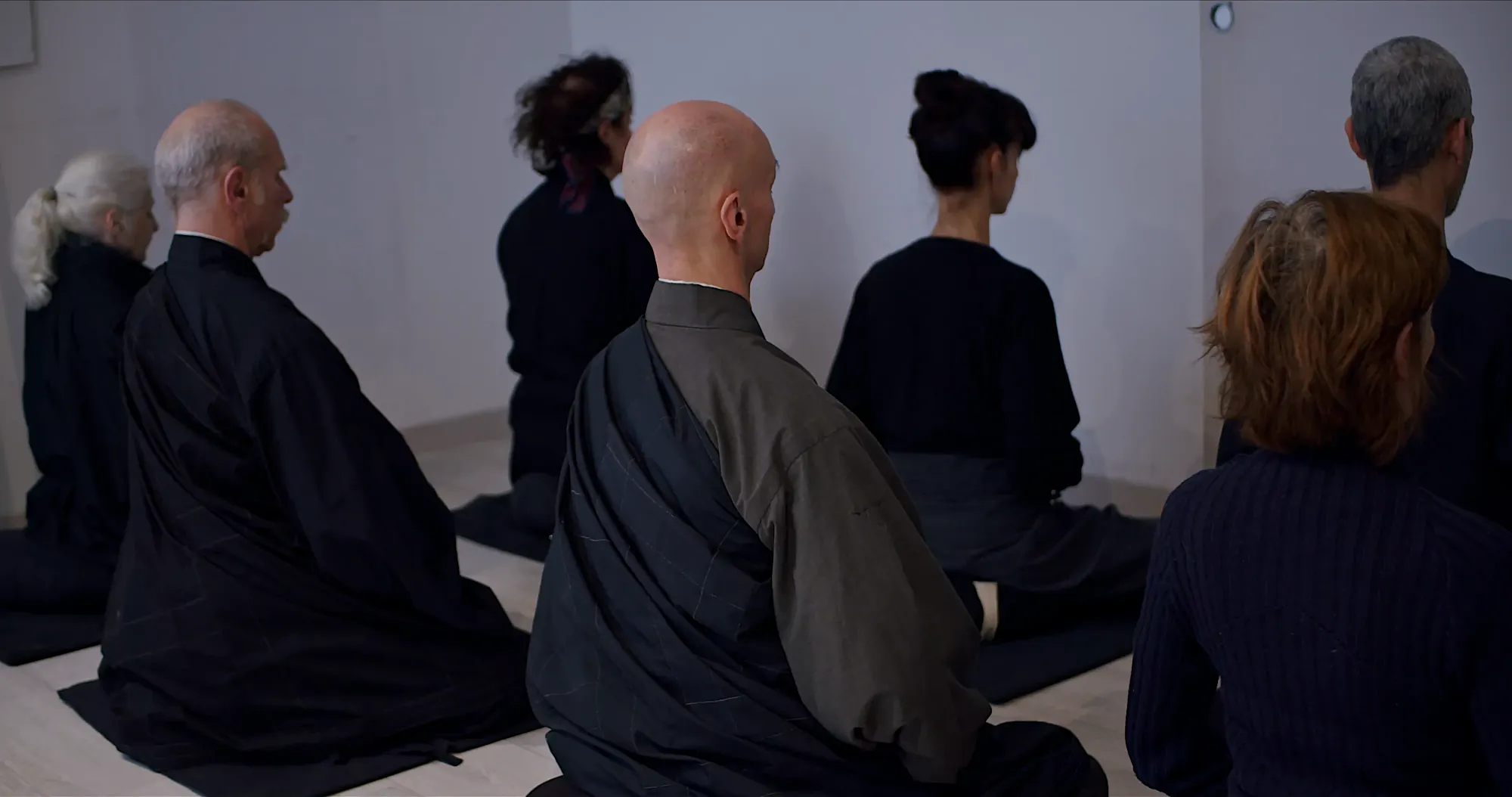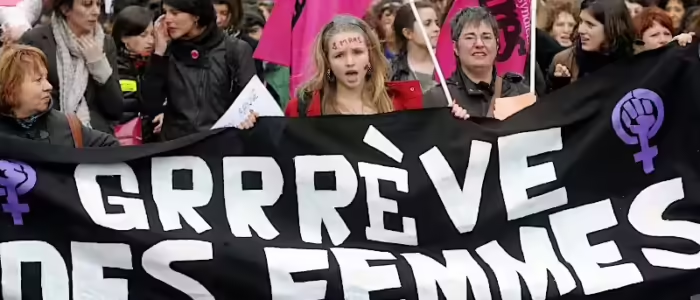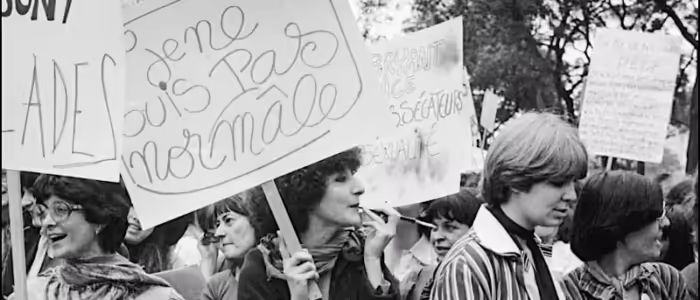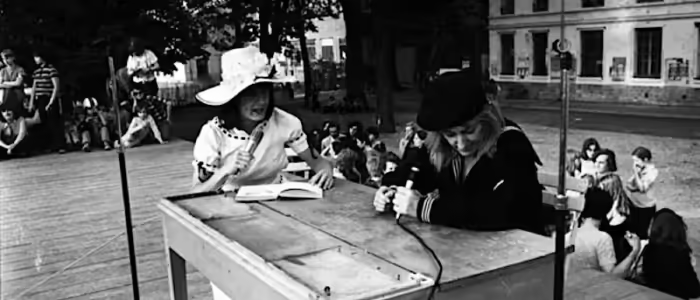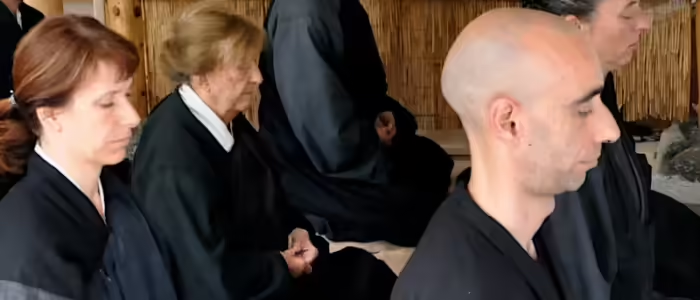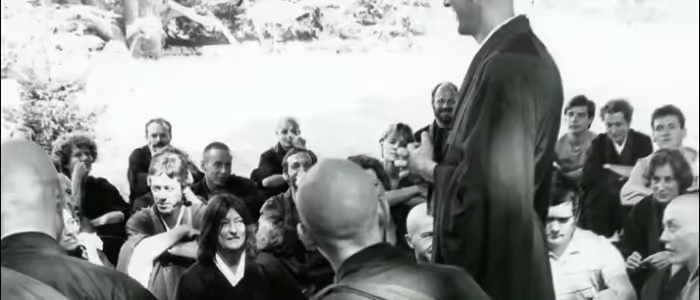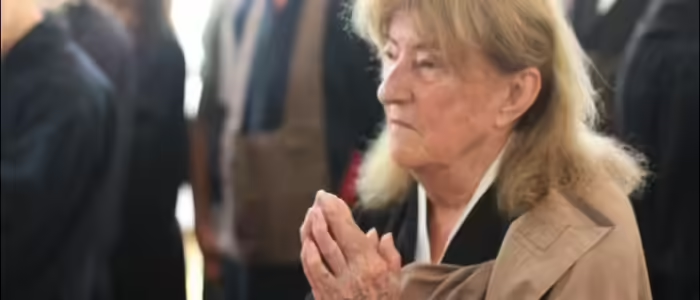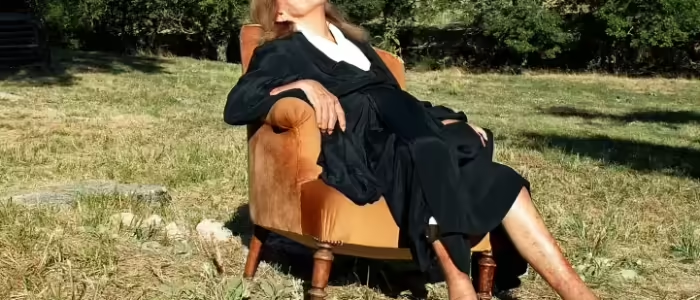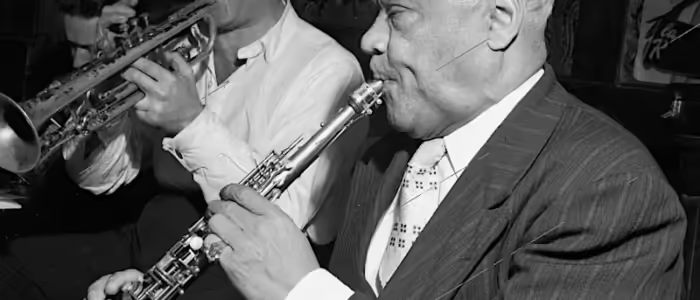Zen and feminism: lived practices
Are Zen and feminism compatible? If we are to believe the words of the greatest masters and the experience lived and passed on by Zen nun and feminist activist Josy Thibaut, yes.
FR Français ES Español
Josy (1925-2017), mother of Master Kosen Thibaut, was both an unfailing practitioner of Zen and a seasoned feminist activist. For many years, she ran a zazen group in her home, which was the origin of the Zen Paris dojo.
Dream and anger
Men shall not reap
Feminism at the Women’s Liberation Movement
After experiencing the post-war jazz scene in the Paris of Saint-Germain-des-Prés (when you arrived at the dojo she ran in her home, you were often greeted by a Louis Armstrong tune), Josy Thibaut resumed her studies at the Sorbonne in… 1967. Just before the energy explosion of May ’68, in which she played a full part.
Zen with Masters Deshimaru and Kosen
In 1978, when her son met Master Deshimaru, she too began practicing zazen.
After being ordained as a Zen nun by her son, who had become a master, she continued zazen without respite, running a small dojo at home.
Feminist songs
You’re crazy!
Continue zazen
Won over by the practice, she continued to sit in the lotus posture assiduously. She took part in all periods of intensive practice, or sesshins, right up to the age of 90, despite a hip prosthesis!
Masculine, feminine: bullshittin’?
But is Josy Thibaut an exception in a Buddhist tradition that more generally rejects women? At least not in the mahāyāna tradition of Great Vehicle Buddhism, of which Zen is a part.
The hīnayāna current, on the other hand, is more concerned with personal liberation than the emancipation of all beings, and generally denies women’s spiritual capacities.
Essenceless
Non-fixed
The Buddha’s children shouldn’t be like this
The 13th century saw Japan enter the military regime of the Kamakura shogunate. In 1223, the future Grand Master Dogen, dissatisfied with his training at the Tendai school, went to China to study Chán with Master Nyōjo.
The Tendai school was founded by Dengyō Daishi in ancient Japan. Attached to the texts, tinged with Confucianism and close to power, it was the dominant branch of Buddhism in Japan before the rise of Zen. Hostile to women, it was more concerned with social prestige than spiritual emancipation. It couldn’t answer Dogen’s questions.
Exclusion
Defilement
Influences
Amnesia
Parity
In the Shōbōgenzō, Dogen opposes any position of inferiority assigned to women. Japanese society seemed relatively permissive at the time. But certain chapters of the “Treasury of the Eye of the True Dharma”, too revolutionary for the taste of the Buddhist clergy, were censored for a long time. They were circulated only as secret teachings, whereas Zen rejected all esotericism!
Beyond
Essence
Principle
The Buddha’s children
This was at a time when the main branches of Buddhism cited being born a woman as one of the obstacles on the path to enlightenment. Meantime, in Europe, a 1233 papal bull laid the foundations for future witch-hunts.
Zen, feminism, and all that jazz
Josy Thibaut was born a woman in the early 20th century. She lived through the darkest and most elating periods of the “Age of Extremes”.
Her early love of jazz led her to fear the worst. During an inspection visit, German soldiers from the occupying army found an album of “degenerate” music. Jazz was not banned at the time, but after 1941 and the United States’ entry into the war, anything to do with American musicians was seen as a protest. Josy, a lover of swing, was more at home with black American players than with the French jazz of the time.
In the 1950s, the French jazz audience, a minority in the population but spread throughout the country, was distinctly young, male, educated, and – relatively – anti-racist.
Rebellion
Anti-racism
Masculinity
Josy’s husband, Gilles Thibaut, accompanied Sidney Bechet on trumpet at the Vieux Colombier club, a temple to the New Orleans style.
Personal and collective practice
If Josy’s three passions – feminism, Zen, and jazz – had to be brought together in a single coherent whole, it would perhaps be that of a practice that is both personal and collective. From militant commitment to a movement with no structure or hierarchy to the rigorous practice of a meditative posture practiced without interruption for 2,500 years, to music that gives pride of place to improvisation within small groups.
Social, political, and spiritual emancipation
On a deeper level, Josy never compartmentalized the different aspects of her activities. Those who knew her can testify how steadfast she could be!
Like the MLF, for whom “the personal is political”, perhaps she was always guided, in her various commitments, by an indomitable desire for emancipation, on all levels, without separation.
Josy Thibaut began zazen and activism in her second youth, from which she never left. She fought for women without reducing herself to her status as a woman. She advanced her chosen cause without rejecting anyone but fighting against an iniquitous value system. Without betraying, denying, or compromising, she practiced and promoted the zazen posture relentlessly, without any selfish goals.
Beyond gender
The Buddha’s children should be like this.
Olivier C
